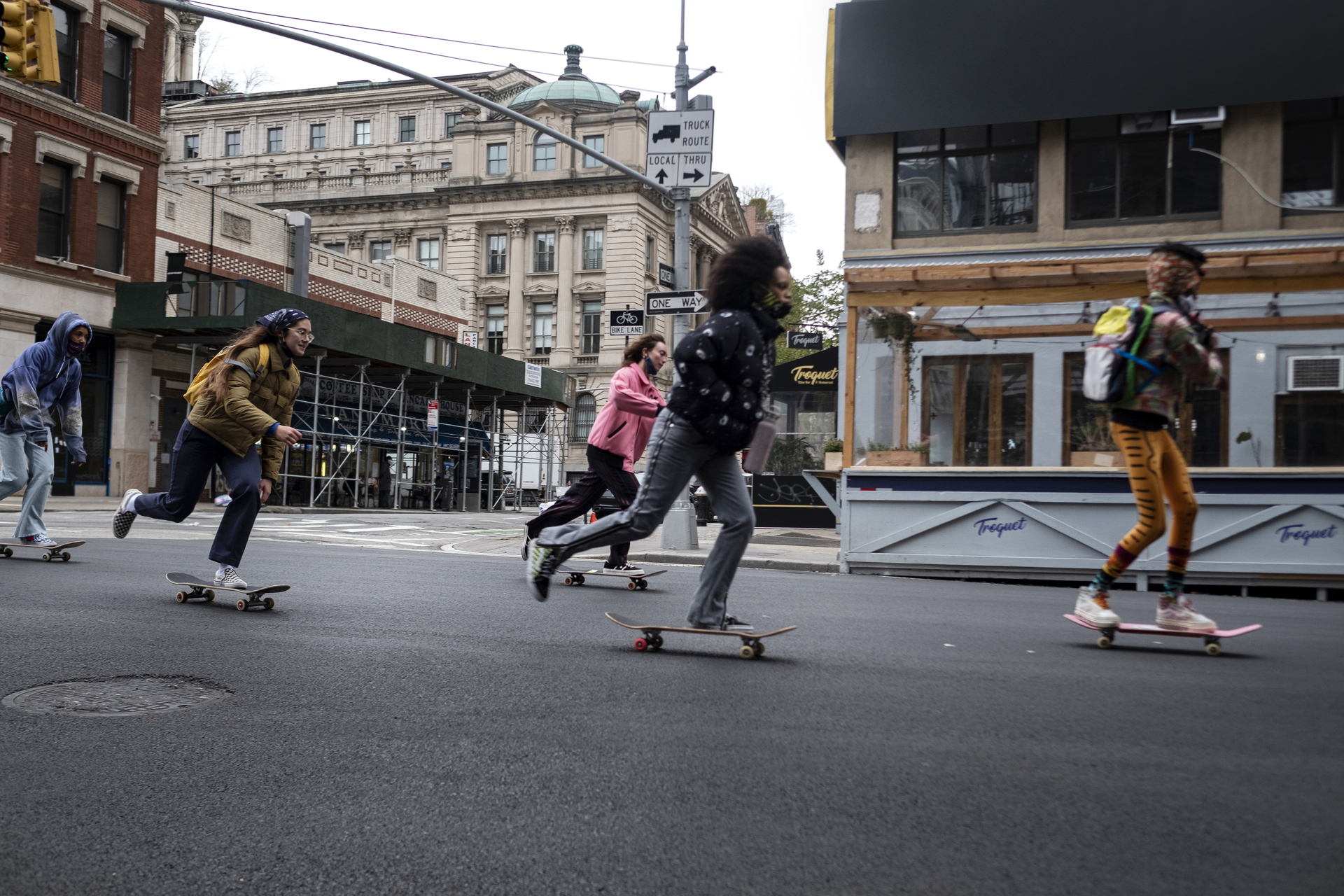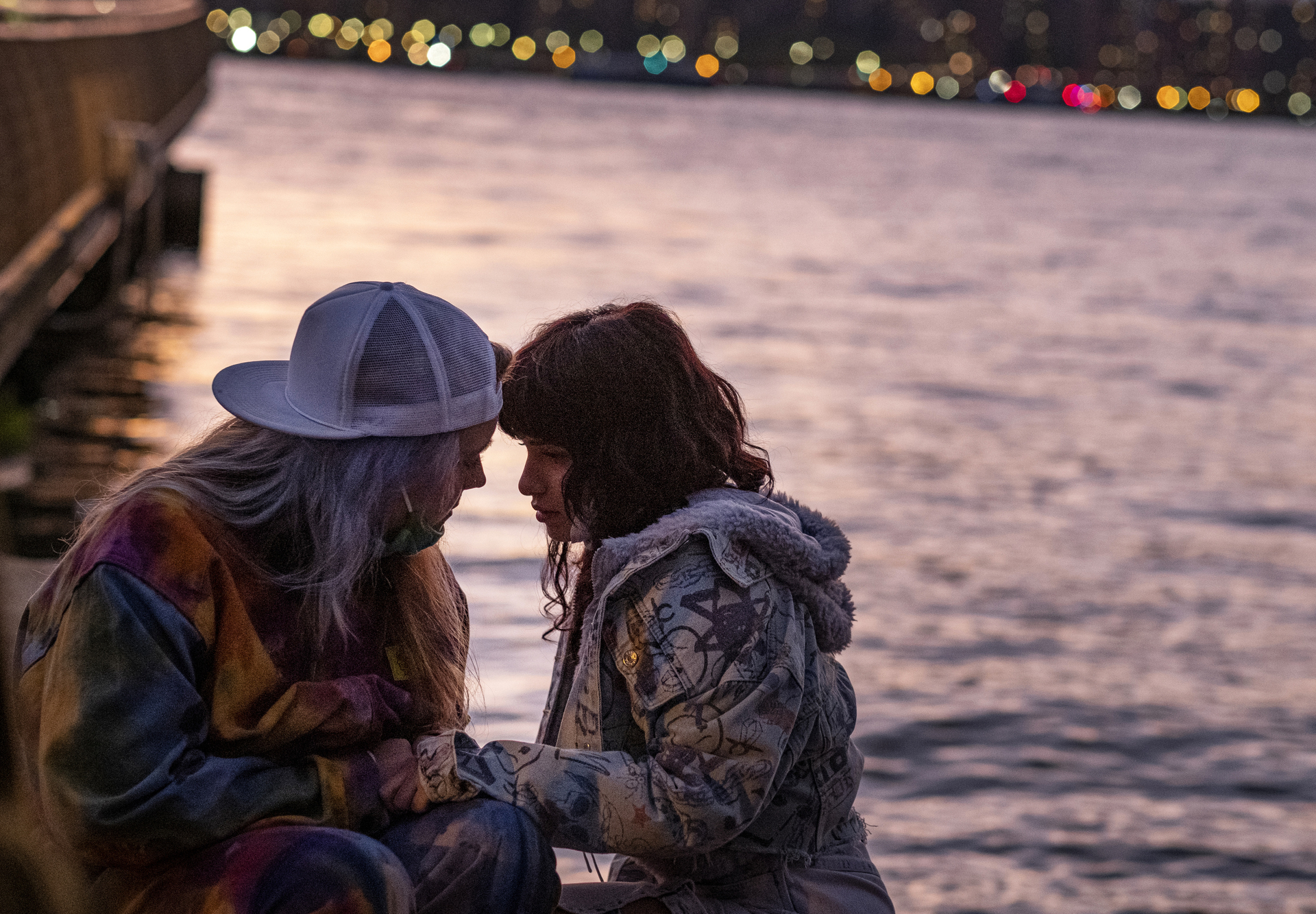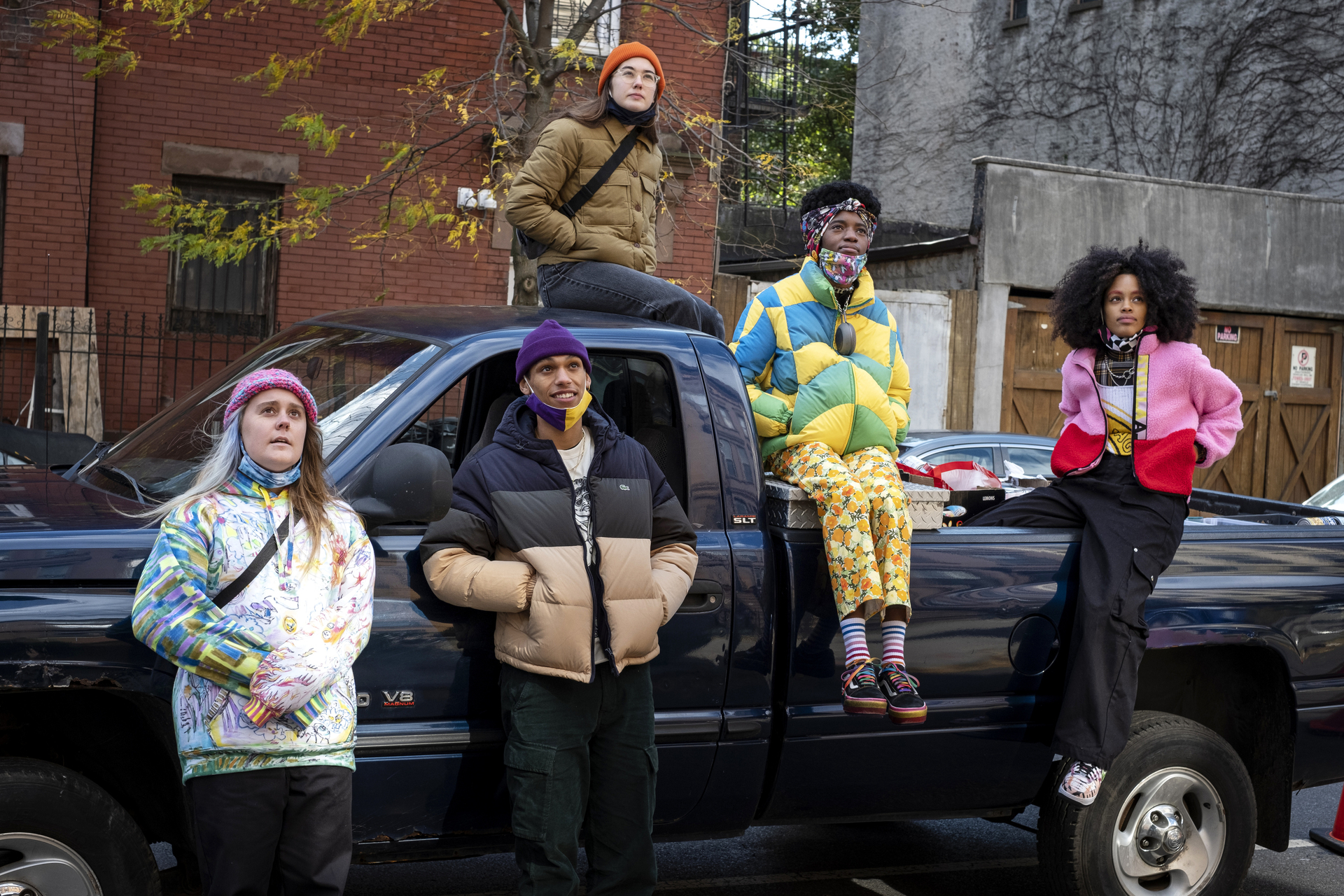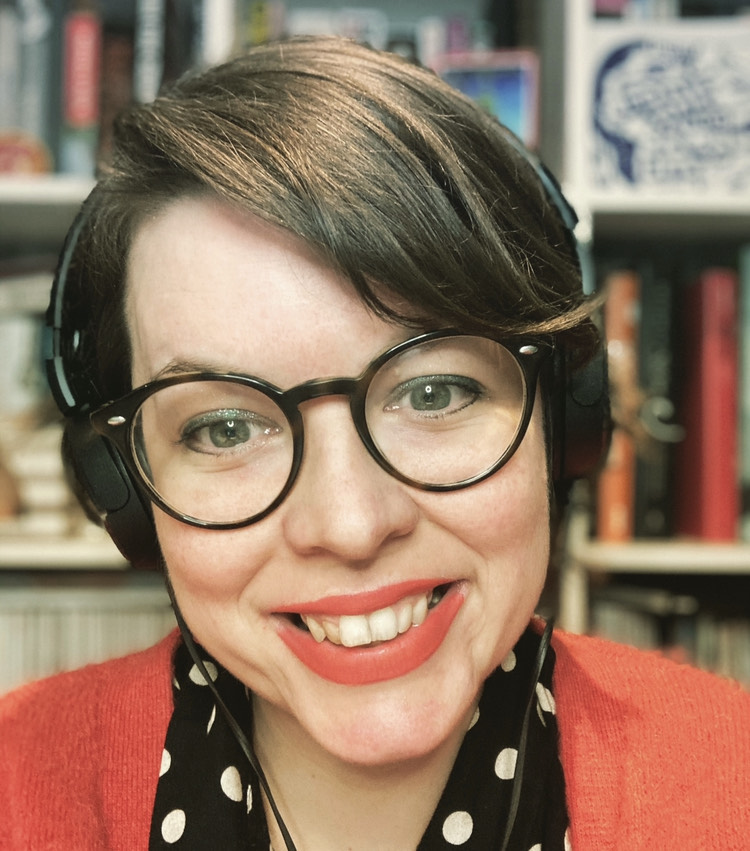Why the 'Betty' cancellation is a major blow
HBO announced they have no plans to make a third season of the skateboarding sensation.

The latest updates, reviews and unmissable series to watch and more!
You are now subscribed
Your newsletter sign-up was successful
Want to add more newsletters?

ONCE A WEEK
What to Watch
Get all the latest TV news and movie reviews, streaming recommendations and exclusive interviews sent directly to your inbox each week in a newsletter put together by our experts just for you.

ONCE A WEEK
What to Watch Soapbox
Sign up to our new soap newsletter to get all the latest news, spoilers and gossip from the biggest US soaps sent straight to your inbox… so you never miss a moment of the drama!
This post contains light spoilers for Betty.
TV has so many enticing shows on offer that it can be hard to keep up and certain titles fly (or in this case, skate) beneath the radar to the point of cancelation. HBO’s vibrant Betty is the latest to get the chop and the news that this underrated gem is not getting a third season stings. Created by Crystal Moselle, Betty is based on Moselle’s 2018 movie Skate Kitchen and follows a group of teen girls skateboarding their way through New York City in a skate-bro culture. “We will not be moving forward with a third season of Betty. We are very grateful for the collaboration with Crystal and our incredible cast — their fearless exploration of the world of New York City’s skate culture will remain a beautiful emblem of friendship and community,” HBO said in a statement this week. A statement that points to its brilliance, but is saying goodbye nonetheless. Despite a strong critical consensus, the second season arrived with very little fanfare even though these six episodes build on a brilliant foundation and tackle the difficult environment we are all facing.
Friendship and community are at Betty’s core that projected a carefree summer as its first season backdrop before navigating the challenges of youth coupled with the impact of the pandemic in its sophomore outing. Nina Moran, Rachelle Vinberg, Dede Lovelace, Kabrina “Moonbear” Adams, and Ajani Russell all appeared in Skate Kitchen and a lot of the actors are playing characters loosely based on themselves. The real-life chemistry adds to the lived-in vibe and there is an effortlessness that shouldn’t be mistaken for not much going on. One thing that cannot be faked is their skateboarding skills and as someone that hung out at a skatepark as a teen (and managed a total of one ollie), it feels like capturing lightning in a bottle — except I cannot skate and they can. Even without this personal connection, there are other aspects that tap into a universal teen experience such as finally finding the group of friends that get you, as well as crushes, hookups, and running around the place you live with barely a care in the world. In Betty, characters like Camille (Vinberg) and Honeybear (Moonbear) are navigating how they want to be perceived, while Janay (Lovelace) is determined to build a safe space to skate free from an elitist (and sexist) door policy.
The focus on young women and particularly LGBTQ+ characters is part of the sadness (and frustration) surrounding this cancellation because this series depicts diverse relationships — and in storylines that never feel like they are just ticking boxes. It is a rare narrative that explores the complex dynamics between adolescent women without the usual competitive cliches. While there are conflicts, it gets into the messy nuance and inherent contradictions during this period of your life instead of broad brushstrokes other writers favor. For example, Kirt’s (Moran) obliviousness about her own privilege when the cops are called (after an incident she caused) feels timely without being preachy. In the second season, Kirt spends her time acting as a dating mentor to the clueless guys they hang out with and while her advice is solid, she is not above reproach or making mistakes — or in this case, hooking up with the girlfriend of one of her friends.
Season 1 is dappled in the New York City sunshine featuring seemingly endless days peppered by getting high or going to work. The challenge in the finale is organizing an all-girl skate sesh, which is a triumphant moment after Honeybear’s attempt in the pilot is such a washout — quite literally when it pours with rain. Coming up against ingrained misogyny is an ongoing challenge for these skateboarders, but during this sequence, it feels like nothing can stop them. Of course, little did any of us know that a pandemic would effectively shut down most of the world and the bustling New York City streets would empty out.

Scripted TV has struggled when it comes to portraying the pandemic — reality has mostly faired better — and there has been a push-pull between wanting to give audiences an escape from the daily misery to depicting a world in which COVID-19 still rages. Betty opted for the latter, which saw characters wearing masks — that are as stylish as their costumes — and some of the characters had jobs as key workers. The backdrop of the pandemic looms large, but it doesn’t dominate the six episodes, and the references aren’t clumsy or forced. Sure, people are reminded to take it seriously, including someone getting asked to leave a bodega for not following masking directions (“Put your masks on, and get the fuck out!”), and the mood is slightly more somber without suffocating the overall arc. One thing the pandemic has reinforced is this need for community spirit, which Betty has even more of in its second season.
Youth often gets a bad rap, but Janay’s community efforts (not only in creating a safe space to skate) go deep, and the Season 2 finale made me weep tears of joy — much like the first season closer. 2020 was a tough year for a number of reasons and the role of the police and Black Lives Matter is also prevalent. A jubilant Halloween party is interrupted by the cops and tension flares. Money or rather a lack of financial security is a recurring theme, which sees Camille grapple with her sense of self when a brand wants her to be something she is not and her current roommate Indigo (Russell) finds herself in over her head when she enters the “sugar-baby” world. Costumes play a huge role in how these characters are perceived and designer Cristina Spiridakis taps into this with Camille’s sponsorship storyline and the personas Indigo adopts while out to dinner with clients.
The latest updates, reviews and unmissable series to watch and more!

Sometimes when a show shifts away from the weather season it was seems suited to (see Broad City in Season 4 when it moved to winter), it can be distracting or remove what made it fun in the first place. Betty’s transition from summer to fall is why they need to find an indoor space to skate, and it also effectively reflects the mood of the city. It has evolved from a sunny disposition, however, the grey skies and heavier coats worn don’t detract from the youthful exuberance fighting to break free of this unusual year. There are more challenges, and yet this factor has added to the texture without damaging the overall spirit. It is what makes this cancelation news so disappointing and I would love to see what Moselle and this group of skateboarding women could do with winter and spring (if they followed the calendar year). Furthermore, it is rare to get a show that taps into the teenage experience so deftly and through a lens that celebrates multiple queer relationships without making a play to shock the audience or do something outlandish. Even the Tokyo Olympics got in on the skateboarding action, and if only HBO had used this landmark occasion to promote Betty further. Word of mouth can only do so much and not enough was made of the critical reaction to the first season.
Both seasons (clocking at 12 episodes) are available to watch on HBO and HBO Max where you can fall in love with this group of women and rue this cancelation. The challenges are always stacked against these skateboarders, but there are fleeting moments of freedom when they are gliding through the city. There are still more Betty stories to be told and tricks to perform — hopefully, we will get to see them shine again.
Emma Fraser spends most of her time writing about TV, fashion, and costume design; Dana Scully is the reason she loves a pantsuit. Words can also be found at Vulture, Elle, Primetimer, Collider, Little White Lies, Observer, and Girls on Tops. Emma has a Master’s in Film and Television, started a (defunct) blog that mainly focused on Mad Men in 2010, and has been getting paid to write about TV since 2015. It goes back way further as she got her big start making observations in her diary about My So-Called Life’s Angela Chase (and her style) at 14.


